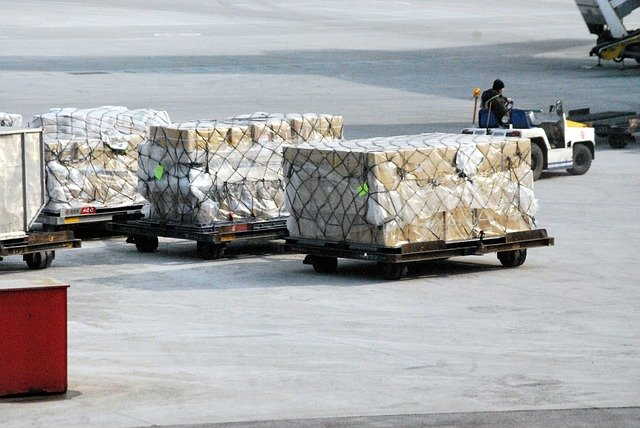The year 2020 has permanently altered the business and trade landscape around the world. Entire industries, particularly aviation, have been forced to adapt their usual ways of doing business while coping with the new norms quickly to keep supply chains moving during a global crisis.
When it comes to cargo transportation, air chartering has become an unsung hero over the past year, offering expertise in managing complex projects and the ability to access the most challenging and remote destinations with exceptional speed.
But what is air cargo chartering? What are its advantages, and what are the things to consider when choosing a service?
In this article, you’ll learn everything you need to know about air cargo chartering.
What is an air cargo charter?
Air cargo charter services aim at filling the gaps in traditional air transportation. Typically, air cargo providers offer flights to each destination regularly, which companies must schedule in advance. But this kind of arrangement fails when businesses are facing:
● Interrupted shipments: If a scheduled flight is canceled or delayed, critical production parts may not arrive on time at their destination.
● Storage complications: Perishable and fragile goods often have to be shipped using specialized equipment that keeps them in good condition.
● Remote deliveries: If a company is far away from major cities, or if one of its suppliers is located in such a location, scheduled air freight flights may not often travel enough to meet transportation needs.
This is where air cargo charter comes in.
Air cargo charter allows you to fly to remote and isolated areas to provide first response cargo in the shortest possible time. With an air cargo charter, you save a lot of money as you no longer face delays in chartering high-value perishable goods.
Besides, if you need to transport many goods in a hurry, an aid cargo charter (specific cargo charter for aid purposes) is the best solution.
What to consider when choosing one?
Now that you have an idea of what an air cargo charter is, here are some elements you should have an eye on when choosing one.
1. Terms and conditions by the air cargo company
Before using an air cargo chartering service, several factors, including their terms and conditions, must be taken into account. This is usually based on your essential requirements.
Checking the terms and conditions will ensure that your cargo complies with all regulations governing cargo transportation.
Some companies usually apply stringent provisions. This will help you avoid fines or damages. The things to keep an eye on are who takes care of the hay loader and the documentation once the goods are already in the cargo area, who pays for the ground transportation from the aircraft to the cargo area, etc.
When you are dealing with a global air cargo charter, it is essential to know whether you comply with the host country where your cargo is going and relevant international standards.
2. Cost estimation
The cost of shipping goods is an essential factor that should influence your decision, as each air charter offers different prices.
In general, the cost of freight is adapted to the size, type, and destination. A cargo of a substantial size will, of course, require higher shipping costs.
Sometimes a small cargo also requires considerable costs. This happens when the shipment is part of a very large or somewhat risky type of cargo.
Some dangerous cargoes are large enough to require you to spend a lot of money. Air cargo chartering services also ensure the safety of the items you send. Also, consider the distance needed to reach the destination of the shipment. Of course, the subsequent delivery of the shipment will also cost you more.
3. Insurance for cargo
You must apply for insurance for the entire shipment to be delivered. This will be a great benefit to you and the whole cargo.
Cargo insurance, in particular, will also protect you upon arrival at your destination. The adjustment provisions of this insurance are usually based on company policy.
Besides, the type and price of the entire shipment is also a factor to consider in obtaining better insurance. Of course, you should be aware of the detailed information on the application and the insurance arrangements you get on the cargo. This helps to avoid the cancellation of a cargo insurance application.
4. Know your requirements
Many cargo owners are not familiar with air cargo charter procedures. The first thing you have to do is find out if it is urgent, then what the payload you have to carry is and the range. If the range is that of a mid-size aircraft like the Boeing B747, you will not charter a Boeing B737.
Finally, airport selection is also essential to know if the B747 can land and take off with the cargo on board with a specified range. Also, keep in mind that support (such as loaders) is available at the destinations, especially for large cargo.
Why is air cargo charter important?
Here are some benefits of an air cargo charter:
1. Manageability
Air chartering has proven to be an efficient means of transportation for the most complex and urgent deliveries throughout the pandemic, and even for the long term. This includes meeting the specific transportation needs of time-sensitive and time-critical items such as medical supplies, materials, and equipment.
Whatever type of goods you want to ship, air cargo charter services facilitate proper management for all special handling requirements, diplomatic clearance channels for international routes, and timely regulatory approvals. This is to ensure complete precision and a smooth operation for convenient and efficient transport.
2. Viability
Especially in crises or emergencies–even beyond COVID-19–organizations turn to chartering as the only viable option for cargo transportation.
Compared to other transportation modes, air chartering stands out as the best end-to-end solution that gives customers better control over their freight shipment.
In the event of a significant decrease in airline cargo capacity, as was evident during the pandemic because of the loss of cargo operations on passenger aircraft bellies, full chartering may be the only option to meet the demand.
Have you ever charted an air cargo yet? What was the overall experience like?
Let us know your thoughts and any relevant experiences in the comments below.












